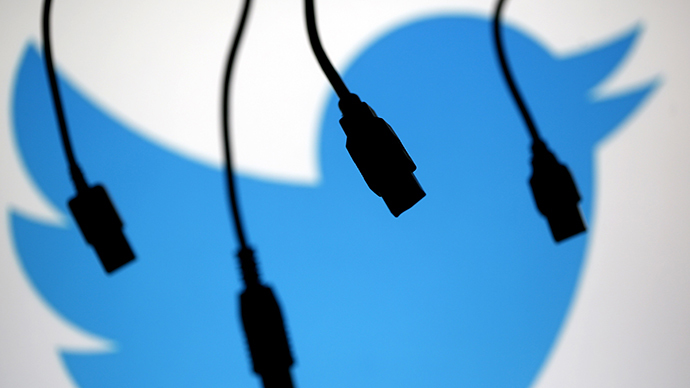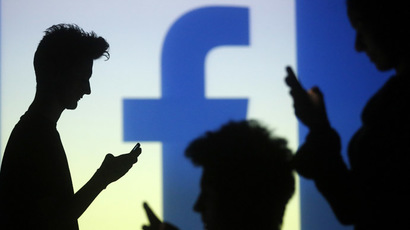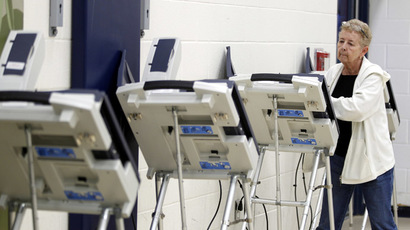Republicans, third parties possibly violated election laws by sharing data on Twitter

The National Republican Congressional Committee used secret codes over Twitter to share polling data with third-party organizations, an investigation shows, possibly violating election laws forbidding third-party groups from coordinating with campaigns.
Using techniques normally associated with secret agents, an investigation by CNN showed the National Republican Congressional Committee (NRCC) shared polling data with Super Political Action Committees (Super PACs) by using dead drops and cypher codes.
Reporters found that a normal tweet involved in the process would be posted on public accounts and read, for example: “CA-40/43-44/49-44/44-50/36-44/49-10/16/14-52–>49/476-10s.”
Did GOP use Twitter to bend election laws?: The National Republican Congressional Committee and a pair of GOP-... http://t.co/jfTywQcbhx
— Timmehta (@MwambiTimo) November 17, 2014
While the tweet might be public, the meaning of such a code would be lost on the average person without information on how to decode the data, according to an unnamed source with knowledge of the activity. In the hands of a Republican committee member, though, that tweet could be used to relay information to a third-party about the US House race in California’s 40th congressional district.
READ MORE:Republicans take control of US Senate, ousting Democrats in midterms
If true, that would allow Republicans to communicate with allied Super PACs, giving them information that could help determine where to spend money on their advertising campaign.
Super PACs – which evolved after the Supreme Court ruling in 2010 Citizens Union v. Federal Elections Commission – are allowed to raise unlimited sums from corporations, unions, associations, and individuals, and spend the money overtly on advertising for and against a candidate. Unlike political action committees, which can contribute small amounts of money to a candidate’s committee, super PAC’s cannot donate directly to a political candidate or be involved with the candidate’s committee.
READ MORE:Facebook kicks political campaigns off of social network
Tweeting such information, then, would seem illegal – but election experts are not so sure.
“It’s a line that has not been defined. This is really on the cutting edge,” Paul S. Ryan, senior counsel at the Campaign Legal Center, a nonpartisan organization focused on campaign finance issues, told CNN. “It might not be legal. It’s a cutting edge practice that, to my knowledge, the Federal Election Commission has never before addressed to explicitly determine its legality or permissibility.”
Did the National Republican Congressional Committee thumb their noses at Ventura County? - http://t.co/nmGJPV0krVpic.twitter.com/ILIsBiEmDd
— Citizens Journal US (@CitizensJournUS) November 17, 2014
READ MORE:Facebook boosted US election turnout via psychology experiment, company reveals
The anonymous source told CNN the tweets he or she captured in screenshots stretched back to July, but the groups have communicated in this manner for four years. Staffers for each group deleted individual tweets every few months, so only the past few months of data were available when CNN first viewed the Twitter accounts. The network’s Chris Moody argued these techniques were designed to skirt election laws.
READ MORE:Claims of dysfunctional voting machines muddy elections
He found out that two outside groups and a Republican campaign committee had access to the information posted to the accounts. They include American Crossroads, the super PAC founded by Karl Rove, the American Action Network, a nonprofit advocacy group, and the NRCC, which is the campaign arm for the House GOP.
And just minutes after Moody asked the NRCC about the scheme, the Twitter accounts were deleted.
“If it truly requires some sort of Ovaltine decoder ring to make heads or tails of the information, then there certainly is the possibility that there was some pre-arrangement,” Kenneth Gross, a former head of the FEC enforcement division who now advises Democrats and Republicans on campaign finance issues, told CNN. “Just making it public is not enough. You have to further meet the requirement of no pre-arrangement or coordination. But it is the burden of the government to demonstrate that.”














